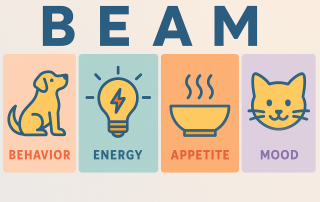Understanding Your Cat’s Bloodwork
When your veterinarian recommends bloodwork, what does it actually mean? What is a CBC? What does “elevated creatinine” really tell you? How concerned should you be about SDMA, thyroid levels, or glucose spikes? In my new ebook, Understanding Your Cat's Bloodwork, I explain what common laboratory tests measure—and what they don’t. You’ll learn how blood values relate to real disease, how to avoid common misunderstandings, and why lab results must always beinterpreted in context. I wrote this to help you understand the numbers, and not panic over the ones printed in ...










